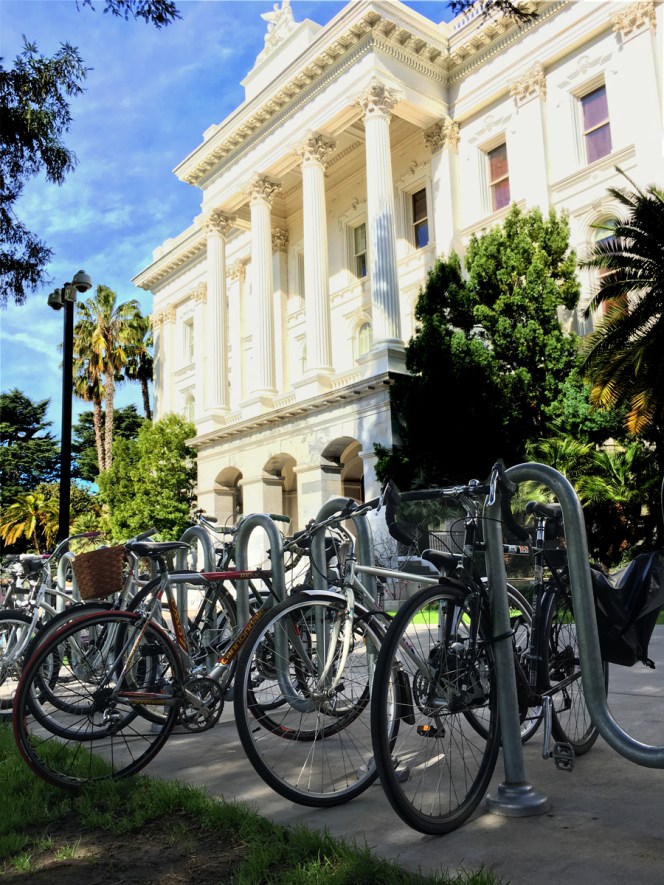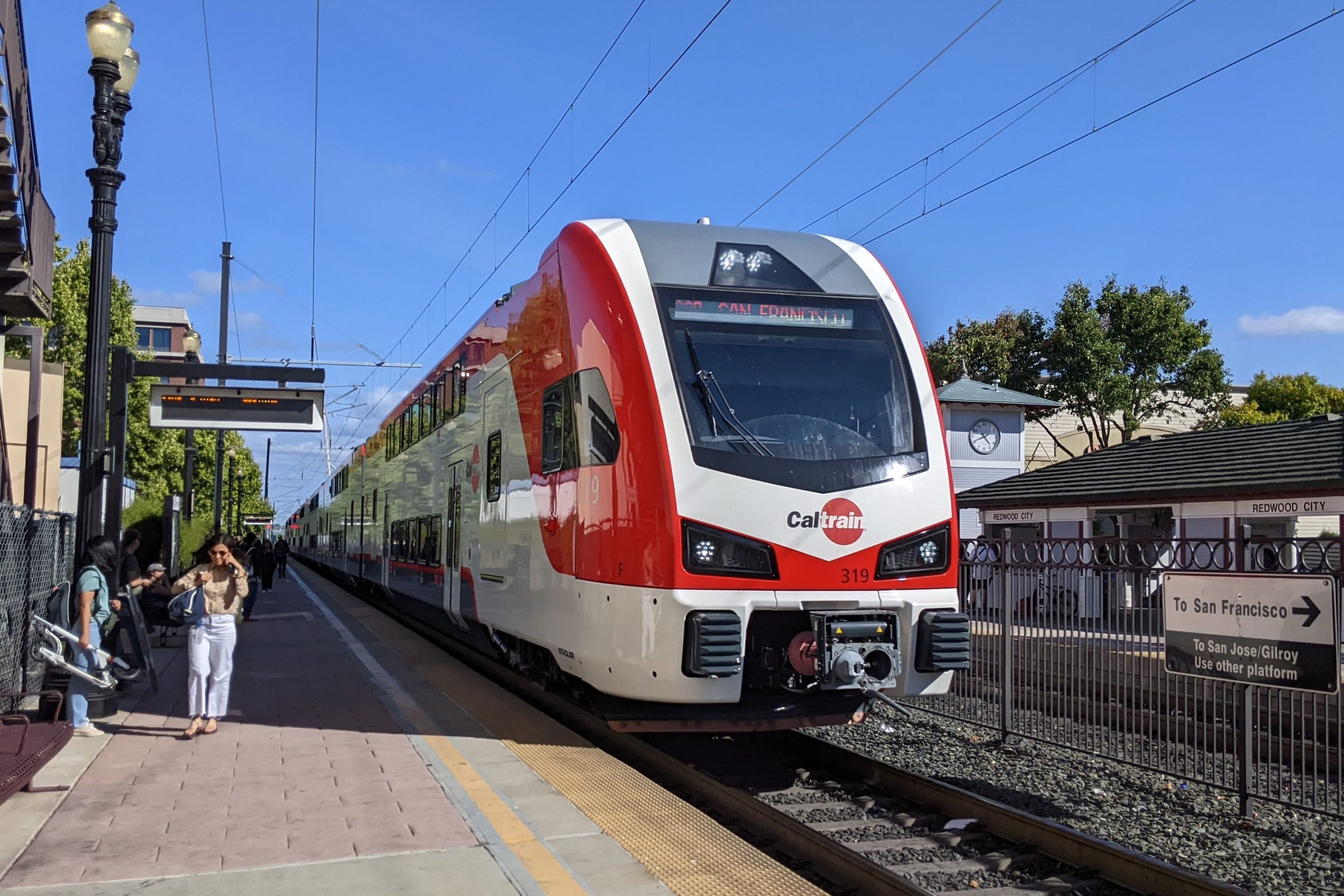If Republicans and Democrats agree on anything, it's that nobody likes potholes. And that we need to repair existing roads, bridges, and other infrastructure.
But Republicans will not raise taxes, insisting that there is money in existing coffers. Democrats point out the inadequacies of the current gas taxes and propose a long-overdue increase.
But the argument about money sidesteps the more important question, which is what to spend the money on. California has an opportunity to invest in the kind of transportation that improves people's lives rather than forcing them to spend more time on smoggy, traffic-choked freeways. Right now there's a chance to fund transportation in a way that helps meet the state's goals for climate change, equity, and health.
Last year's Special Session produced a funding proposal from Senator Jim Beall (D-Campbell). Along with gas tax increases and new fees, it would have restructured transportation funding oversight and pushed Caltrans to be more efficient. It was far from perfect, but in the end that didn't matter; the party line argument about taxes killed it before it could come to a vote.
Then the November election brought the Democrats a supermajority in California, and Senator Beall reintroduced S.B. 1. Republicans continue to vote against it in committee, but that gesture is now largely symbolic.
S.B. 1 includes funding for active transportation and transit, which is great. Also, its focus on maintenance and repair is a great improvement over past investment decisions that awarded new capital investments over boring repair jobs.
But Beall's bill still would expand highways, despite mountains of evidence that this makes congestion and air quality worse by creating incentives to drive alone. Investing in highways also reduces safety and travel choices for people who don't drive.
And the small share of S.B. 1 allotted for transit—which can positively affect congestion and air quality—has problems beyond just the amount. Under S.B. 1, transit investment comes from two things: an increase in the diesel tax and an increase in the current allocation from the Greenhouse Gas Reduction Fund (GGRF), which gets its revenue from cap-and-trade. But the amount collected from diesel taxes fluctuates, and the allocation from the GGRF is a percentage of total revenues, which means there is no way to know from one year to the next how much money will be available.
Additionally, legal and policy uncertainties about cap-and-trade mean the quarterly auctions are bringing in less money than expected.
And while transit is a good use of cap-and-trade funds, which are supposed to be invested in reducing greenhouse gasses, there are other good programs the GGRF also needs to fund.
Transit does much more than reduce greenhouse gasses; it gets people to jobs and services in a space-efficient way, helps reduce congestion, and increases choice so people who don't want to drive don't have to. It also works in conjunction with active, healthy, clean modes such as walking and biking.
S.B. 1 also focuses too much, as usual, on capital investment. While new buses and rail connections are important, transit is starved for operation and maintenance funding. California needs to invest in service type, quality, extent, and frequency.
Transit investments should come from reliable, related sources, including the gas tax, since people riding buses and trains save motorists on road maintenance, money, and time. And they should be a lot higher than proposed in S.B. 1.
How likely is it that California's transportation spending priorities will match its other goals?
Prospects look dim. Governor Brown's recent letter to the federal government showed that his infrastructure priorities were focused more on highway expansion than on transit. S.B. 1 sailed through its first two committees, and looks likely to meet Brown's deadline of April 6 to pass a funding bill.
While some senators expressed concern about the bill's details, for the most part they have voted along party lines. Questions raised in committee hearings have been about whether and how much to charge owners of electric vehicles, given the state's desire to encourage their use and the opposing desire to charge people for their fair share of road maintenance. There was at least one call for more discussion about transit funding, but the bill is hurtling towards the finish line without any major revisions.
Governor Brown and legislative members talk about fighting climate change. But their actual transportation policies are driving California in the wrong direction.






